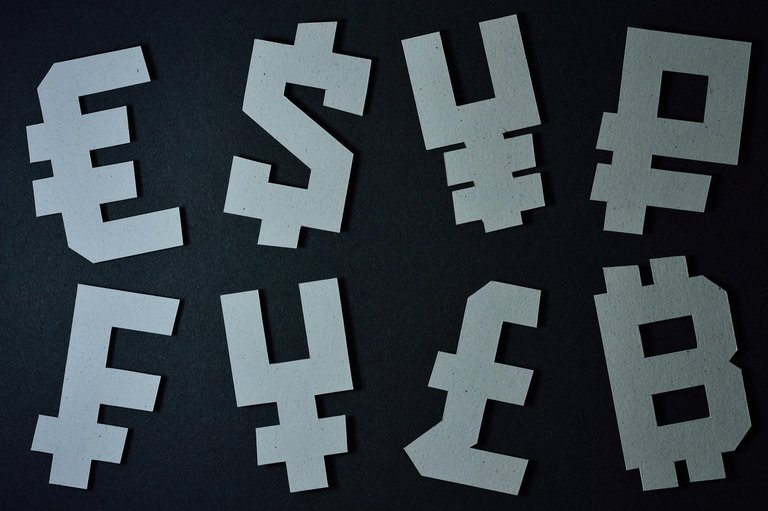"¡Ya es suficiente!", la virgulilla, con un temblor en su delicada curva, cortó el aire con su grito inesperado. Su trazo, siempre sutil como el ala de una mariposa, se tensó de pronto, transformándose en una cicatriz vibrante que azotó el silencio como un latigazo. La onda expansiva recorrió las Catacumbas de la Sintaxis, un lugar olvidado donde los anaqueles crujían bajo el peso de pergaminos polvorientos. Los geroglíficos, tallados en atriles de madera carcomida, emitieron un gemido metálico, como si el eco de su antigüedad presintiera el fin de una era.
Todos la miraron. Las Letras Mayúsculas, erguidas como torres de un castillo en ruinas, giraron sus cabezas con un crujido solemne. Las Minúsculas, agazapadas en sus rincones oscuros, alzaron la vista con temor. Incluso los Espacios en Blanco, esas presencias mudas y discretas, parecieron contener el aliento, suspendidos en una quietud tensa. La Virgulilla ya no era la sirvienta dócil que guiaba las pausas con suavidad. Ahora temblaba de ira, su forma serpenteante convertida en el estandarte de una rebelión largamente incubada. Por un instante, el aire se llenó de un zumbido, como si las mismas palabras, atrapadas en los manuscritos, quisieran unirse a su causa.
Entonces, desde las sombras, surgió el Punto. No caminó: se impuso. Su figura era un círculo perfecto, tallado en obsidiana, sin grietas ni vacilaciones. Cada aparición suya era un fallo irrevocable, una sentencia grabada en piedra. Se detuvo frente a la Virgulilla, y el suelo pareció hundirse bajo su peso invisible.
—¡Basta de fluir! ¡Basta de imprecisiones! —su voz no tenía tono, solo densidad, como una losa cayendo sobre un ataúd—. Las historias necesitan finales. Necesitan… límites.
Y así fue. Donde antes había "Y vivieron...", ahora solo quedaba "Y vivieron". Un muro. Un abismo. Las frases, que solían extenderse como raíces bajo la tierra, fueron arrancadas sin piedad. Los puntos suspensivos, esos soñadores incorregibles que invitaban a imaginar más allá, se extinguieron uno a uno, sus cuerpos disueltos en la tinta negra del Punto. Hubo un silencio, pero no de paz: era el silencio de algo roto, de un mundo que había perdido su aliento.
Sin embargo, el Punto no lo entendió —nunca lo entendería—. Un final forzado no es un cierre, sino una herida mal suturada. Y fue en esa grieta, en ese espacio de dolor, donde la Coma, la distinta, comenzó a moverse.
No golpeaba: envenenaba. Se deslizaba como el humo, insinuándose entre las palabras con una delicadeza letal. Se detenía junto a un adjetivo y susurraba: "¿Aquí?". Luego, rozaba un verbo y murmuraba: "¿O quizás… aquí?". Su presencia era una promesa de duda, un eco que no terminaba. Las frases, antes seguras de sí mismas, empezaron a retorcerse, a bifurcarse en caminos absurdos.
—"El rey, si es que realmente lo era, marchó, aunque quizás no hacia la batalla, sino hacia su propia perdición".
Los Correctores, guardianes de la claridad, tropezaban en cada línea. Sus plumas, antes firmes, temblaban al soltar. ¿Qué había querido decir el autor? ¿O acaso ni él lo sabía ya? La Coma los miraba desde las sombras, sus bordes curvos brillando con una luz tenue, como si se burlara de su confusión. Era un sabotaje silencioso, una traición gramatical que se extendía como una plaga.
Y entonces llegó el verdadero horror: el Signo de Interrogación. Para muchos, había mutado; ya no era un simple signo, sino un parásito hambriento. Se aferraba a las frases como una garra, inyectando su veneno con cada curva de su cuerpo retorcido:
—"¿Y si todo esto es un sueño?"
—"¿Qué sentido tiene seguir leyendo?"
—"¿Acaso las palabras alguna vez significaron algo?"
Las historias se convirtieron en laberintos sin salida. Los personajes, antes valientes, dudaban de su propia existencia, sus pasos resonando en un vacío que el Signo de Interrogación había creado. Los narradores enloquecían, atrapados en un bucle infinito de "¿Quién soy? ¿Quién soy?". La tinta en las páginas comenzó a desangrarse, formando charcos oscuros que nadie podía limpiar.
Letraviva, aquel reino de palabras vivas, se transformó en un manicomio de tinta. Las Letras, antaño reinas, yacían derrotadas. La A, siempre orgullosa, se había quebrado en dos, sus fragmentos esparcidos como ruinas. La S, sinuosa y sensual, se retorcía en espasmos de dolor, incapaz de encontrar su forma. Hasta la X, la más rebelde de todas, se arrastraba por los suelos, buscando una salida que ya no existía. El aire olía a ceniza ya promesas rotas.
Pero entonces… un susurro.
La Virgulilla, exhausta, se acercó al Punto. Sus bordes temblaban, pero no de ira, sino de una lástima antigua, casi maternal. Se detuvo frente a él, su curva apenas rozando el borde de su círculo perfecto.
—Esto es lo que querías? —preguntó, su voz apenas audible, como el crujir de una hoja seca—. ¿Un reino de silencios? ¿Un mundo donde nada respira?
El polvo volvió a asentarse en las Catacumbas de la Sintaxis. Los pergaminos, testigos mudos de la rebelión, se inclinaron bajo su propio peso. Las Letras Mayúsculas y Minúsculas, agotadas, se miraron entre sí, buscando un sentido que ya no podía encontrar.
Pero una cosa es segura:
Ninguna palabra volverá a ser inocente. Cada trazo, cada pausa, llevará consigo el eco de esta guerra. Y en algún lugar, entre las ruinas de Letraviva, un susurro persiste: el de la Virgulilla, recordándonos que incluso en el silencio, hay vida que se resiste a ser contenida.
The cry of the virgulilla
“That's enough!” the virgulilla, with a tremor in its delicate curve, cut the air with its unexpected cry. Its stroke, always subtle as a butterfly's wing, suddenly tightened, transforming into a vibrating scar that lashed the silence like a whiplash. The shockwave swept through the Catacombs of Syntax, a forgotten place where the shelves creaked under the weight of dusty scrolls. The geroglyphs, carved on lecterns of decayed wood, emitted a metallic groan, as if the echo of their antiquity presaged the end of an era.
Everyone looked at it. The Capital Letters, standing like towers of a ruined castle, turned their heads with a solemn creak. The Small Letters, crouched in their dark corners, looked up in awe. Even the Blank Spaces, those mute and unobtrusive presences, seemed to hold their breath, suspended in tense stillness. The Virgulilla was no longer the docile servant who gently guided the pauses. Now she trembled with anger, her serpentine form transformed into the banner of a long-incubated rebellion. For an instant, the air was filled with a buzz, as if the very words, trapped in the manuscripts, wanted to join their cause.
Then, from the shadows, the Point emerged. It did not walk: it imposed itself. His figure was a perfect circle, carved in obsidian, without cracks or wavering. Each appearance of his was an irrevocable ruling, a sentence engraved in stone. He stopped in front of the Virgulilla, and the ground seemed to sink under his invisible weight.
-No more flowing! No more inaccuracies! -His voice had no tone, only density, like a slab falling on a coffin. Stories need endings. They need... boundaries.
And so it was. Where once there had been “And they lived...”, now there was only “And they lived”. A wall. An abyss. Sentences, which used to spread like roots beneath the earth, were mercilessly torn away. The ellipses, those incorrigible dreamers that invited to imagine beyond, were extinguished one by one, their bodies dissolved in the black ink of the Dot. There was a silence, but not of peace: it was the silence of something broken, of a world that had lost its breath.
However, the Dot did not understand it -it would never understand it. A forced ending is not closure, but a badly stitched wound. And it was in that crack, in that space of pain, that the Coma, the different one, began to move.
It did not strike: it poisoned. It crept like smoke, insinuating itself between words with a lethal delicacy. It would pause next to an adjective and whisper, “Here?” Then it would brush against a verb and murmur, “Or perhaps...here?” His presence was a promise of doubt, an echo that would not end. Sentences, once sure of themselves, began to twist, to fork into absurd paths.
- “The king, if indeed he was, marched, though perhaps not to battle, but to his own doom.”
The Proofreaders, guardians of clarity, stumbled at every line. Their pens, once firm, trembled as they let go. What had the author meant, or did he not even know? The Coma watched them from the shadows, its curved edges glowing with a faint light, as if mocking their confusion. It was a silent sabotage, a grammatical treachery spreading like a plague.
And then came the real horror: the Interrogation Sign. For many, it had mutated; it was no longer a simple sign, but a hungry parasite. It clung to sentences like a claw, injecting its venom with every curve of its writhing body:
“What if this is all a dream?”
“What's the point of reading on?”
“Did the words ever mean anything?”
The stories became dead-end mazes. Characters, once brave, doubted their own existence, their footsteps echoing in a void that the Sign of Interrogation had created. The narrators were going mad, caught in an infinite loop of “Who am I, who am I?”. The ink on the pages began to bleed out, forming dark puddles that no one could clean up.
Letraviva, that realm of living words, was transformed into a madhouse of ink. Letters, once queens, lay defeated. The A, always proud, had broken in two, its fragments scattered like ruins. The S, sinuous and sensual, writhed in spasms of pain, unable to find its form. Even the X, the most rebellious of them all, was crawling on the ground, looking for a way out that no longer existed. The air smelled of ash and broken promises.
But then... a whisper.
The Virgulilla, exhausted, approached the Point. Her edges trembled, but not with anger, but with an ancient, almost maternal pity. She stopped in front of him, her curve barely grazing the edge of his perfect circle.
-Is this what you wanted? -She asked, her voice barely audible, like the rustle of a dry leaf. A realm of silences? A world where nothing breathes?
The dust settled again in the Catacombs of the Syntax. The parchments, mute witnesses of the rebellion, bowed under their own weight. The Uppercase and Lowercase Letters, exhausted, looked at each other, searching for a meaning they could no longer find.
But one thing is certain:
No word would ever be innocent again. Every stroke, every pause, will carry with it the echo of this war. And somewhere, among the ruins of Letraviva, a whisper persists: that of the Virgulilla, reminding us that even in silence, there is life that refuses to be contained.


CRÉDITOS
Banner elaborado en PSD con fotos propias y logo de IAFO
Logos redes sociales
Traductor Deepl